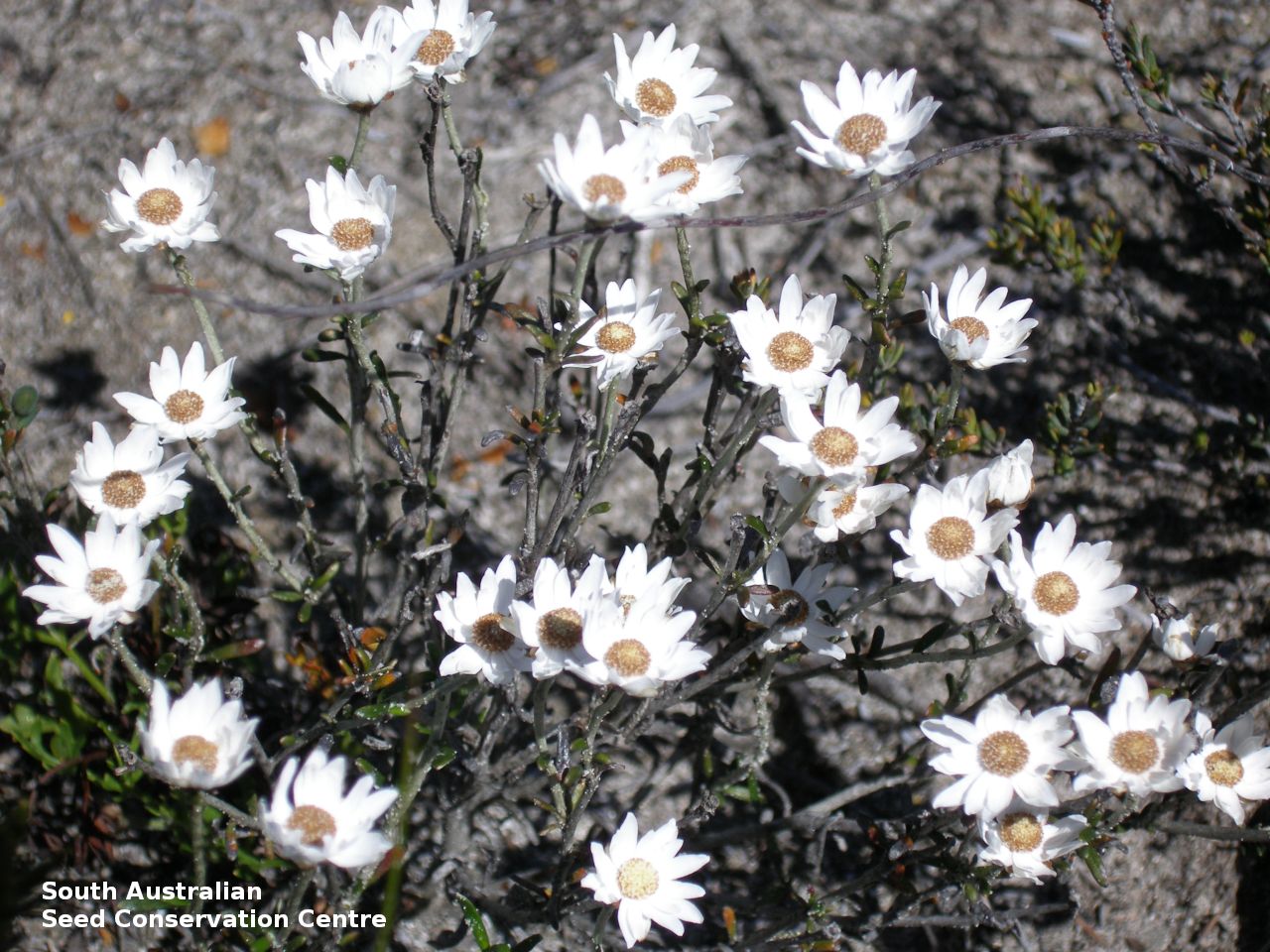



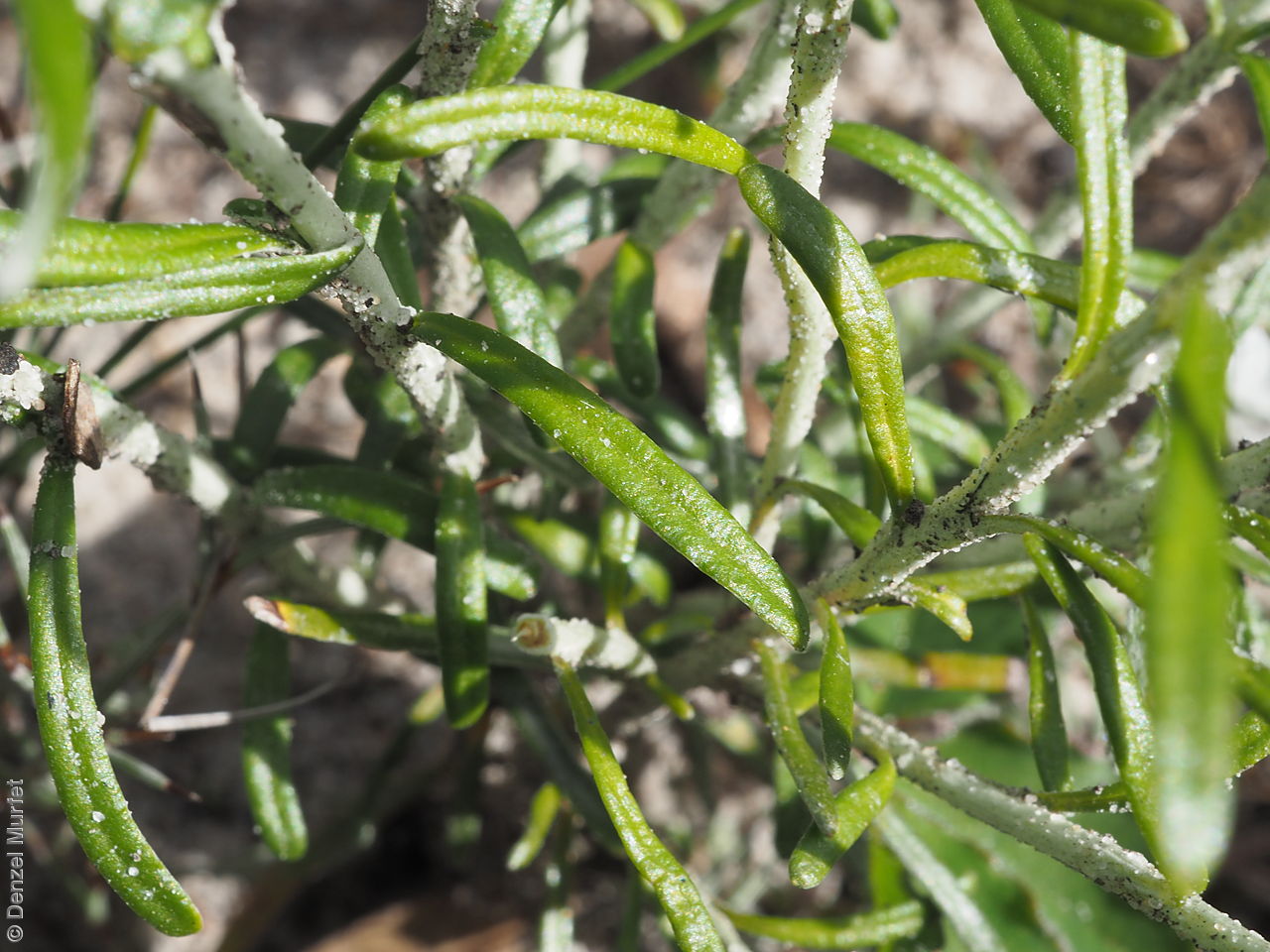
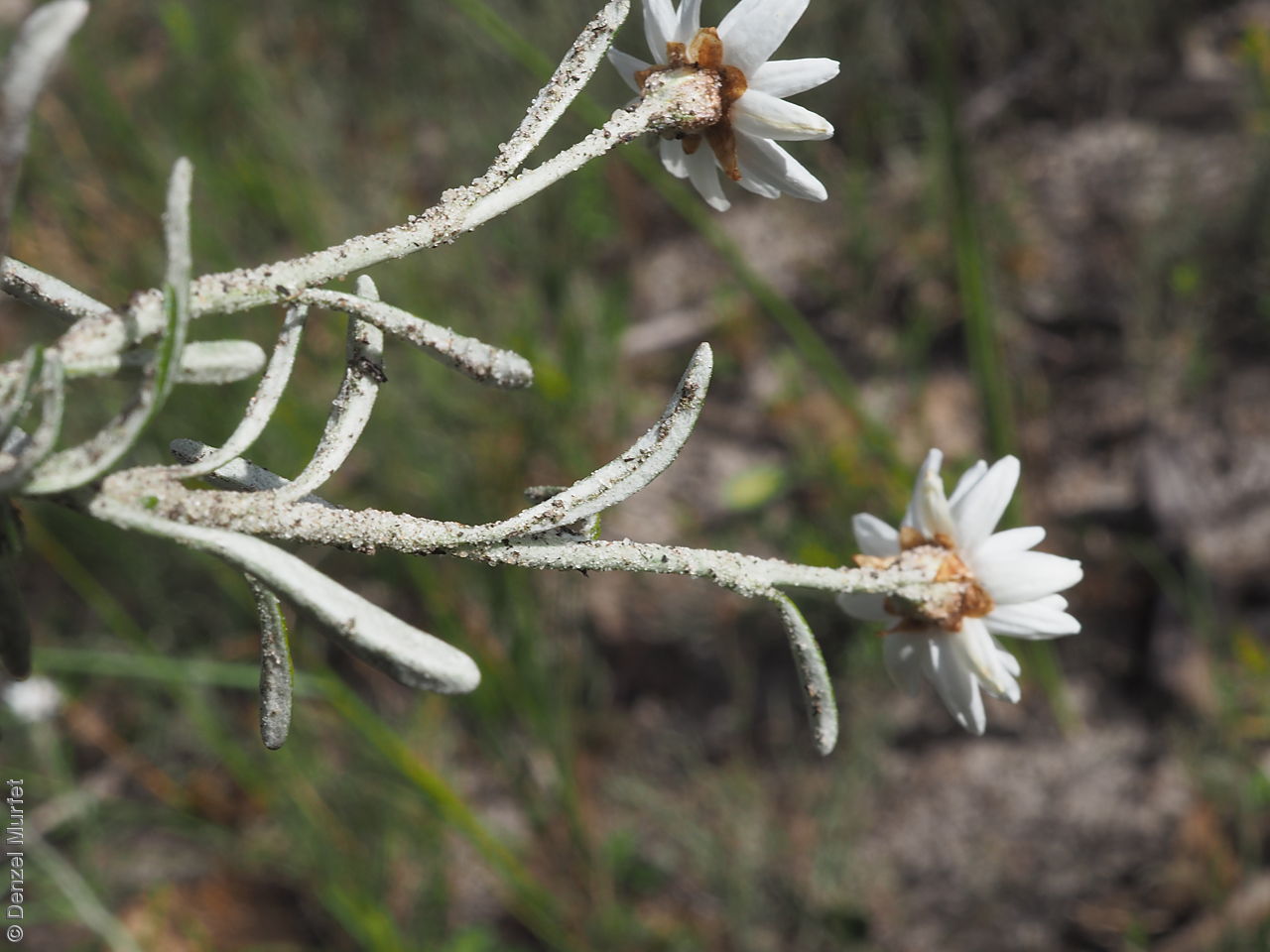
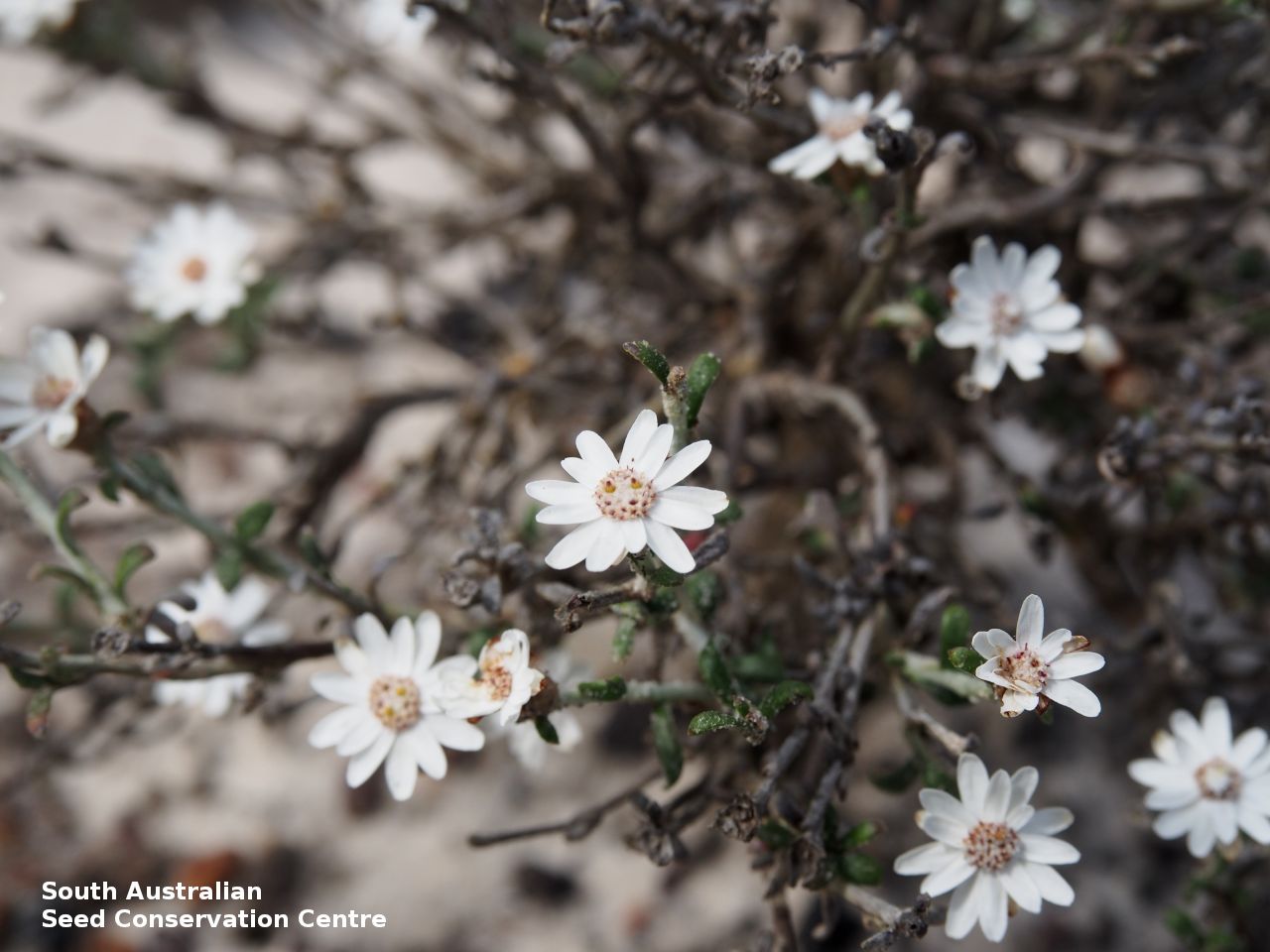
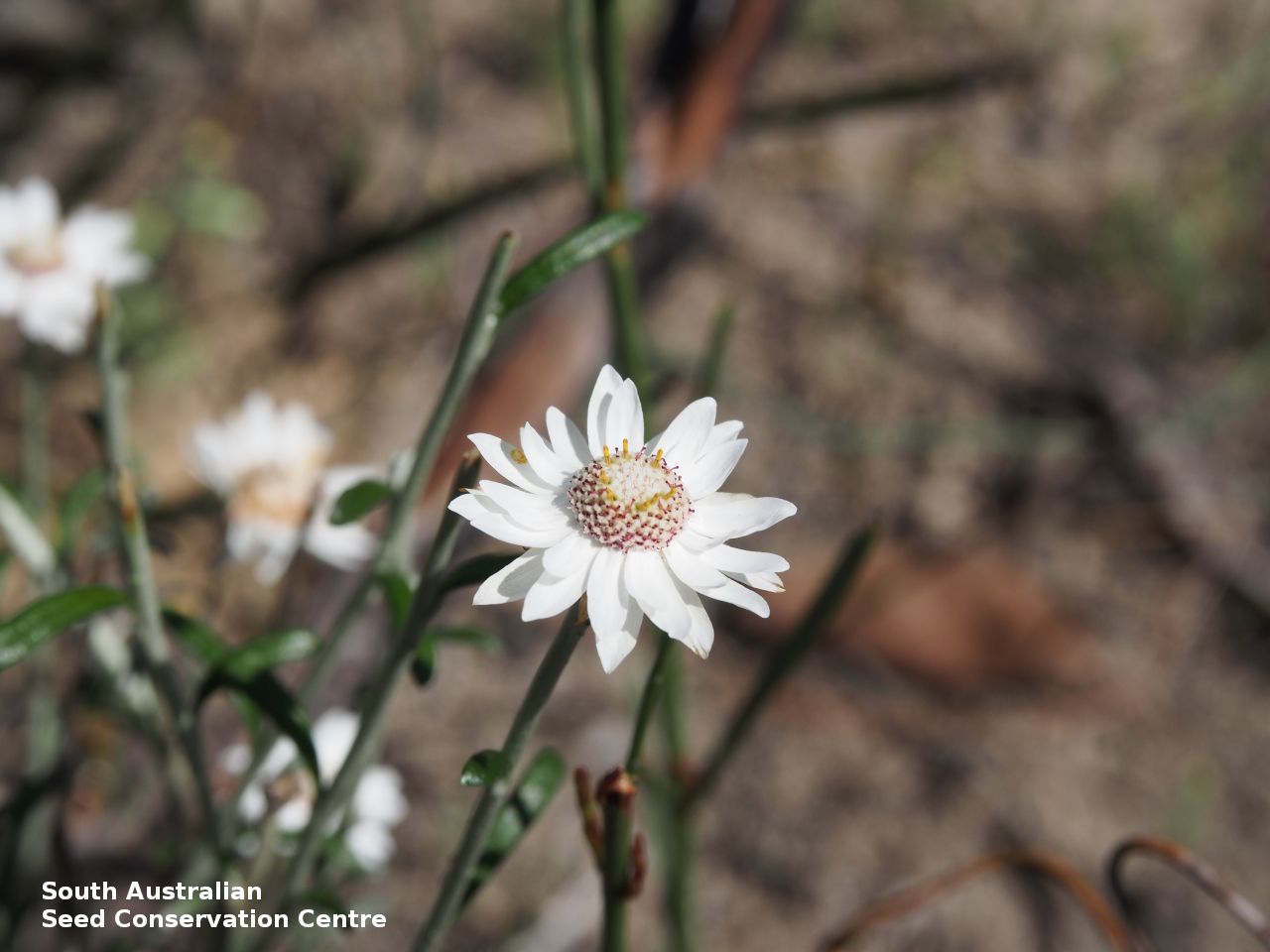


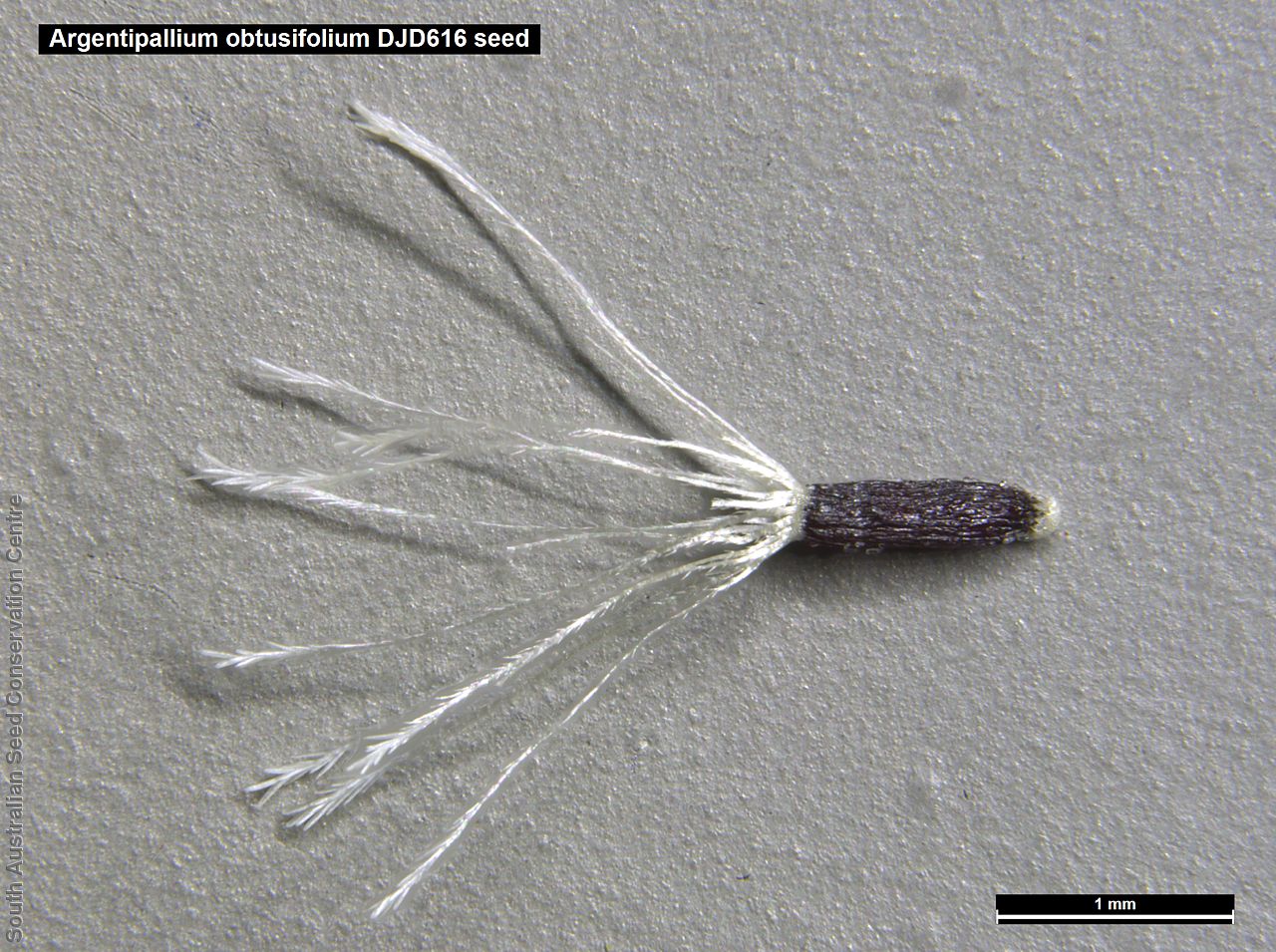
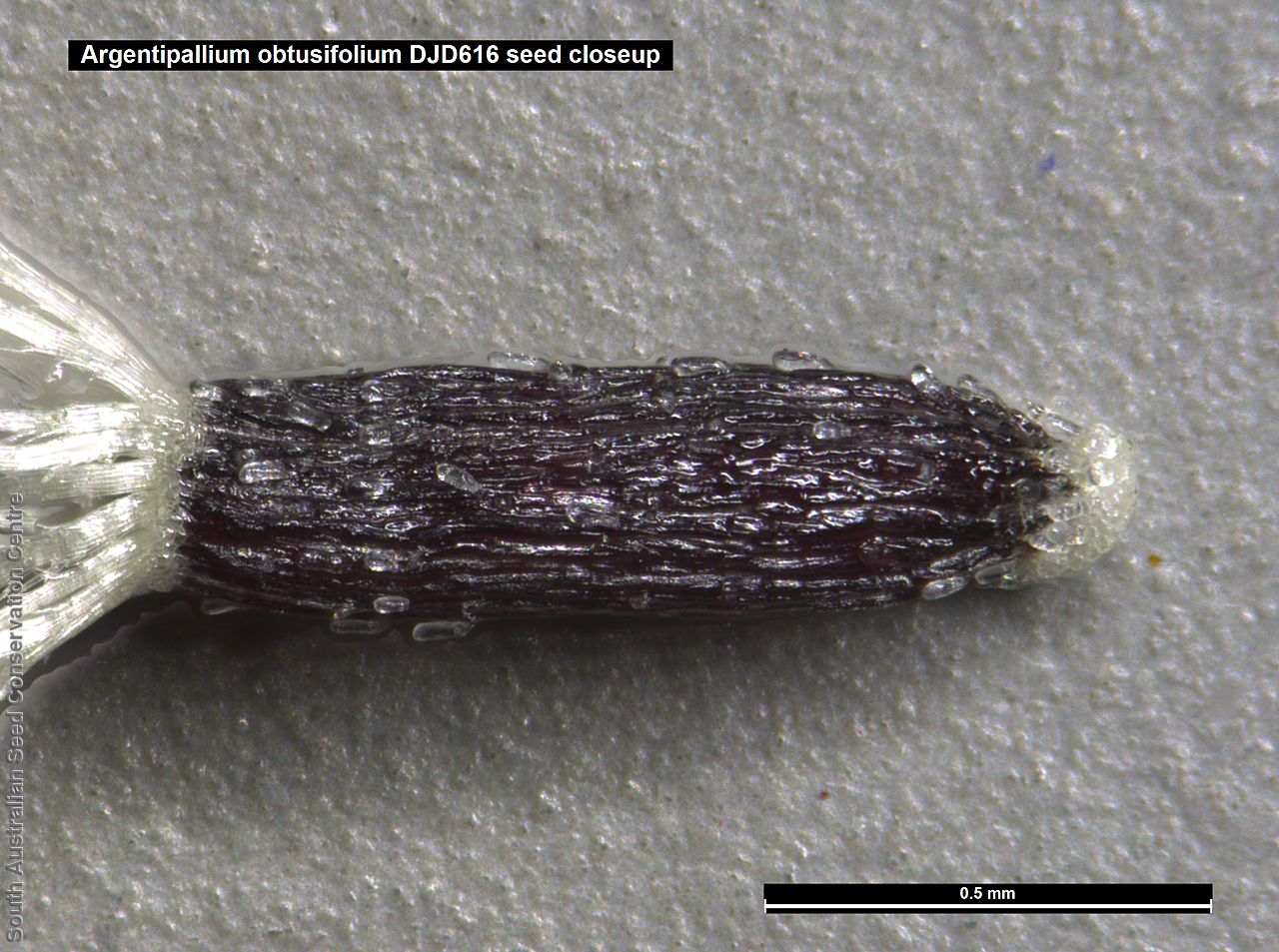
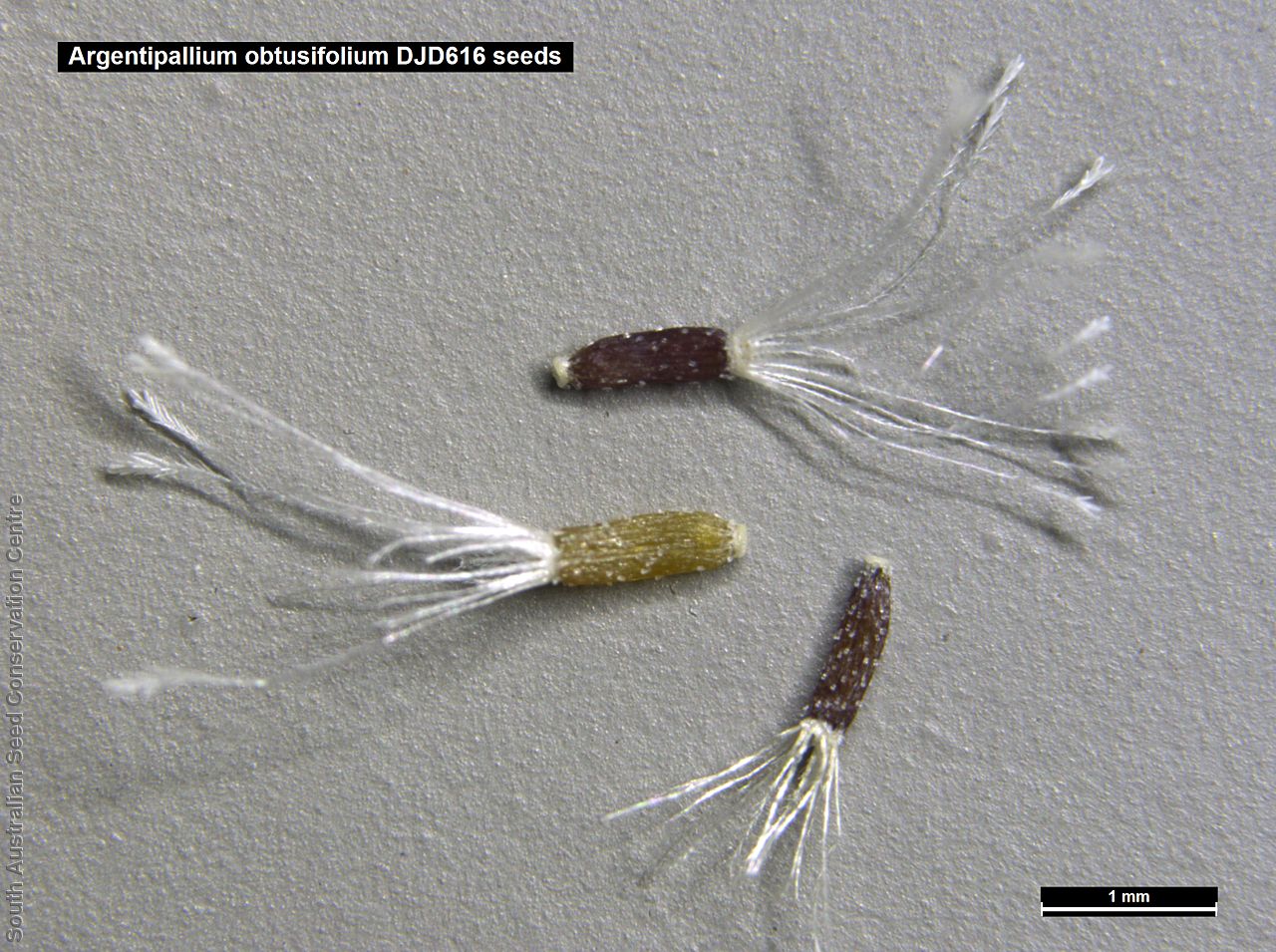
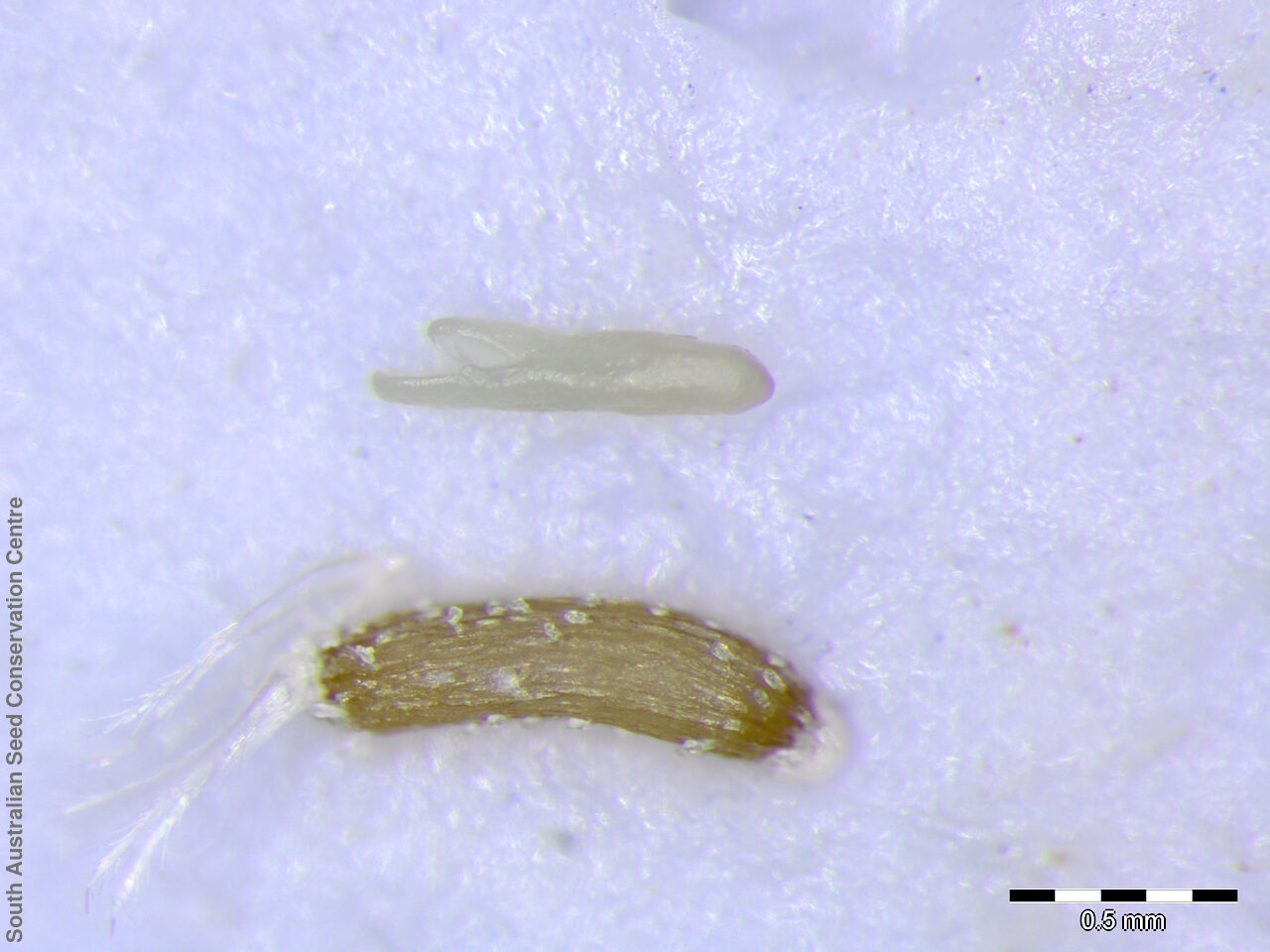

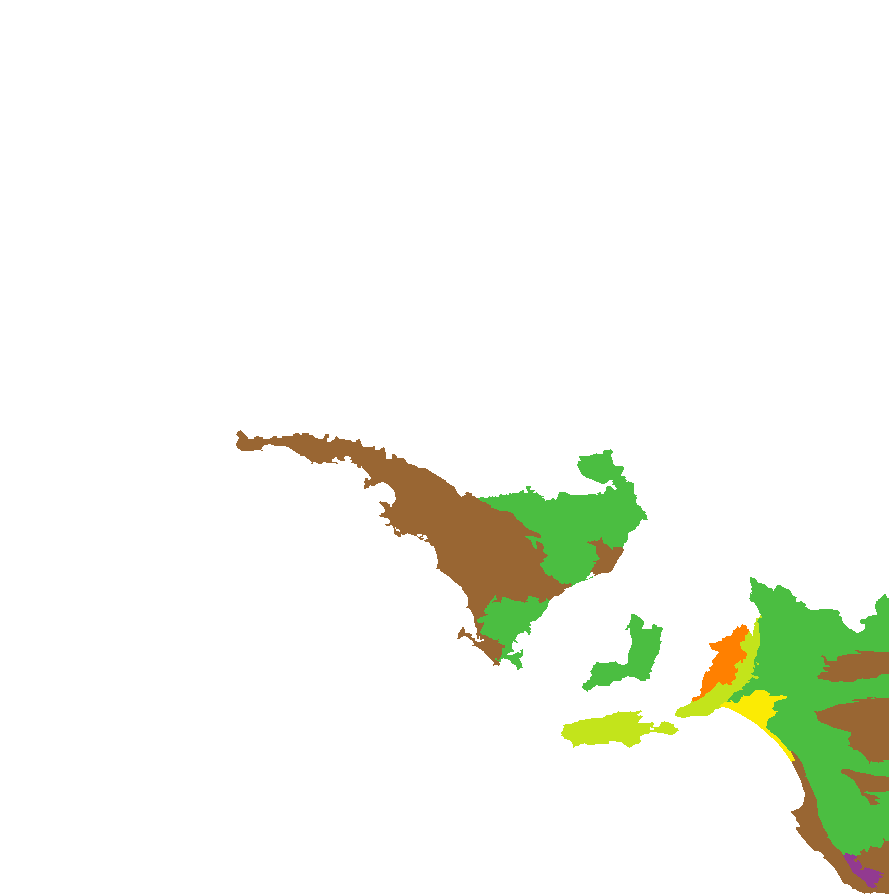
Botanical art
Prior names
Helichrysum obtusifolium
Etymology
Argentipallium from the Latin 'argenteus' meaning silver and 'pallium' meaning mantle; a reference to the silvery indumentum that covers leaves and branches of some species. Obtusifolium from the Latin 'obtusus' meaning blunt and 'folium' meaning leaf, referring to the species blunt-pointed leaves.
Distribution and status
Found in the southern part of South Australia from Eyre Peninsula to the lower South-east, growing in mallee heath on deep sandy soils. Also found in New South Wales, Victoria and Tasmania. Native. Common in South Australia. Uncommon in New South Wales. Common in the other States.
Herbarium regions: Eyre Peninsula, Northern Lofty, Murray, Yorke Peninsula, Southern Lofty, Kangaroo Island, South Eastern, Green Adelaide
NRM regions: Adelaide and Mount Lofty Ranges, Eyre Peninsula, Kangaroo Island, Northern and Yorke, South Australian Murray-Darling Basin, South East
AVH map: SA distribution map (external link)
Plant description
Twiggy much-branched perennial herb to 30 cm high with silvery-white branches. Leaves narrow-oblanceolate to 25 mm long and 2 mm wide, upper surface glabrous, lower surface silvery-white woolly. Solitary white flower-heads at terminal on erect leafy stalk. Flowering between September and November. Fruits are white papery daisy. Seeds are dark brown oblong seed to 1 mm long covered with scattered crystal like hairs, with pappus to 3 mm long. Seed embryo type is spatulate fully developed.
Seed collection and propagation
Collect seeds between October and January. Collect mature daisy heads that are starting to dry off, should easily come off by hand. Place the heads in a tray for a week to dry. Then rub the heads gently with your hands to dislodge the seeds. Viable seeds will be round and hard. Store the seeds with a desiccant such as dried silica beads or dry rice, in an air tight container in a cool and dry place. From one collection, the seed viability was high, at 90%. Seeds are non-dormant, viable seed should germinate readily.
| Location | No. of seeds (weight grams) | Number of plants | Date collected | Collection number Collection location | Date stored | % Viability | Storage temperature |
|---|---|---|---|---|---|---|---|
| BGA MSB | 16,450 (3.62 g) 16,450 (3.62 g) | 100+ | 23-Oct-2006 | DJD616 South Eastern | 1-Aug-2007 | 90% | -18°C |
Number of plants: This is the number of plants from which the seeds were collected.
Collection location: The Herbarium of South Australia's region name.
% Viability: Percentage of filled healthy seeds determined by a cut test or x-ray.